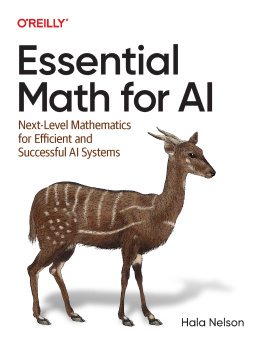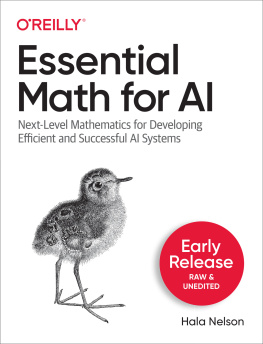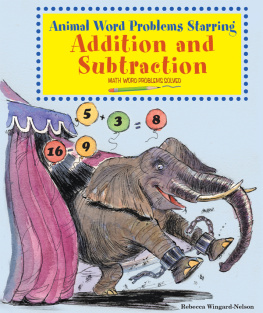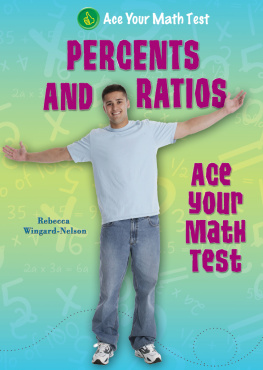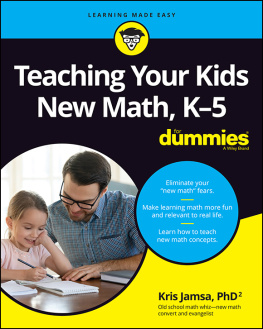Hala Nelson - Essential Math for AI (Final Version)
Here you can read online Hala Nelson - Essential Math for AI (Final Version) full text of the book (entire story) in english for free. Download pdf and epub, get meaning, cover and reviews about this ebook. year: 2023, publisher: OReilly Media, Inc., genre: Romance novel. Description of the work, (preface) as well as reviews are available. Best literature library LitArk.com created for fans of good reading and offers a wide selection of genres:
Romance novel
Science fiction
Adventure
Detective
Science
History
Home and family
Prose
Art
Politics
Computer
Non-fiction
Religion
Business
Children
Humor
Choose a favorite category and find really read worthwhile books. Enjoy immersion in the world of imagination, feel the emotions of the characters or learn something new for yourself, make an fascinating discovery.
- Book:Essential Math for AI (Final Version)
- Author:
- Publisher:OReilly Media, Inc.
- Genre:
- Year:2023
- Rating:3 / 5
- Favourites:Add to favourites
- Your mark:
- 60
- 1
- 2
- 3
- 4
- 5
Essential Math for AI (Final Version): summary, description and annotation
We offer to read an annotation, description, summary or preface (depends on what the author of the book "Essential Math for AI (Final Version)" wrote himself). If you haven't found the necessary information about the book — write in the comments, we will try to find it.
Essential Math for AI (Final Version) — read online for free the complete book (whole text) full work
Below is the text of the book, divided by pages. System saving the place of the last page read, allows you to conveniently read the book "Essential Math for AI (Final Version)" online for free, without having to search again every time where you left off. Put a bookmark, and you can go to the page where you finished reading at any time.
Font size:
Interval:
Bookmark:

Technology and AI markets are like a river, where some parts are moving faster than others. Successfully applying AI requires the skill of assessing the direction of the flow and complementing it with a strong foundation, which this book enables, in an engaging, delightful, and inclusive way. Hala has made math fun for a spectrum of participants in the AI-enabled future!
Adri Purkayastha, Group Head, AI Operational Risk and Digital Risk Analytics, BNP Paribas
Texts on artificial intelligence are usually either technical manuscripts written by experts for other experts, or cursory, math-free introductions catered to general audiences. This book takes a refreshing third path by introducing the mathematical foundations for readers in business, data, and similar fields without advanced mathematics degrees. The author weaves elegant equations and pithy observations throughout, all the while asking the reader to consider the very serious implications artificial intelligence has on society. I recommend Essential Math for AI to anyone looking for a rigorous treatment of AI fundamentals viewed through a practical lens.
George Mount, Data Analyst and Educator
Hala has done a great job in explaining crucial mathematical concepts. This is a must-read for every serious machine learning practitioner. Youd love the field more once you go through the book .
Umang Sharma, Senior Data Scientist and Author
To understand artificial intelligence, one needs to understand the relationship between math and AI. Dr. Nelson made this easy by giving us the foundation on which the symbiotic relationship between the two disciplines is built.
Huan Nguyen, Rear Admiral (Ret.), Cyber Engineering, NAVSEA
by Hala Nelson
Copyright 2023 Hala Nelson. All rights reserved.
Printed in the United States of America.
Published by OReilly Media, Inc. , 1005 Gravenstein Highway North, Sebastopol, CA 95472.
OReilly books may be purchased for educational, business, or sales promotional use. Online editions are also available for most titles (http://oreilly.com). For more information, contact our corporate/institutional sales department: 800-998-9938 or corporate@oreilly.com .
- Acquisitions Editor: Aaron Black
- Development Editor: Angela Rufino
- Production Editor: Kristen Brown
- Copyeditor: Sonia Saruba
- Proofreader: JM Olejarz
- Indexer: nSight, Inc.
- Interior Designer: David Futato
- Cover Designer: Karen Montgomery
- Illustrator: Kate Dullea
- January 2023: First Edition
- 2023-01-04: First Release
See http://oreilly.com/catalog/errata.csp?isbn=9781098107635 for release details.
The OReilly logo is a registered trademark of OReilly Media, Inc. Essential Math for AI, the cover image, and related trade dress are trademarks of OReilly Media, Inc.
The views expressed in this work are those of the author, and do not represent the publishers views. While the publisher and the author have used good faith efforts to ensure that the information and instructions contained in this work are accurate, the publisher and the author disclaim all responsibility for errors or omissions, including without limitation responsibility for damages resulting from the use of or reliance on this work. Use of the information and instructions contained in this work is at your own risk. If any code samples or other technology this work contains or describes is subject to open source licenses or the intellectual property rights of others, it is your responsibility to ensure that your use thereof complies with such licenses and/or rights.
978-1-098-10763-5
[LSI]
AI is built on mathematical models. We need to know how.
I wrote this book in purely colloquial language, leaving most of the technical details out. It is a math book about AI with very few mathematical formulas and equations, no theorems, no proofs, and no coding. My goal is to not keep this important knowledge in the hands of the very few elite, and to attract more people to technical fields. I believe that many people get turned off by math before they ever get a chance to know that they might love it and be naturally good at it. This also happens in college or in graduate school, where many students switch their majors from math, or start a Ph.D. and never finish it. The reason is not that they do not have the ability, but that they saw no motivation or an end goal for learning torturous methods and techniques that did not seem to transfer to anything useful in their lives. It is like going to a strenuous mental gym every day only for the sake of going there. No one even wants to go to a real gym every day (this is a biased statement, but you get the point). In math, formalizing objects into functions, spaces, measure spaces, and entire mathematical fields comes after motivation, not before. Unfortunately, it gets taught in reverse, with formality first and then, if we are lucky, some motivation.
The most beautiful thing about math is that it has the expressive ability to connect seemingly disparate things together. A field as big and as consequential as AI not only builds on math, as that is a given; it also needs the binding ability that only math can provide in order to tell its big story concisely. In this book I will extract the math required for AI in a way that does not deviate at all from the real-life AI application in mind. It is infeasible to go through existing tools in detail and not fall into an encyclopedic and overwhelming treatment. What I do instead is try to teach you how to think about these tools and view them from above, as a means to an end that we can tweak and adjust when we need to. I hope that you will get out of this book a way of seeing how things relate to each other and why we develop or use certain methods among others. In a way, this book provides a platform that launches you to whatever area you find interesting or want to specialize in.
Another goal of this book is to democratize mathematics, and to build more confidence to ask about how things work. Common answers such as Its complicated mathematics, Its complicated technology, or Its complex models, are no longer satisfying, especially since the technologies that build on mathematical models currently affect every aspect of our lives. We do not need to be experts in every field in mathematics (no one is) in order to understand how things are built and why they operate the way they do. There is one thing about mathematical models that everyone needs to know: they always give an answer. They always spit out a number. A model that is vetted, validated, and backed with sound theory gives an answer. Also, a model that is complete trash gives an answer. Both compute mathematical functions. Saying that our decisions are based on mathematical models and algorithms does not make them sacred. What are the models built on? What are their assumptions? Limitations? Data they were trained on? Tested on? What variables did they take into account? And what did they leave out? Do they have a feedback loop for improvement, ground truths to compare to and improve on? Is there any theory backing them up? We need to be transparent with this information when the models are ours, and ask for it when the models are deciding our livelihoods for us.
Font size:
Interval:
Bookmark:
Similar books «Essential Math for AI (Final Version)»
Look at similar books to Essential Math for AI (Final Version). We have selected literature similar in name and meaning in the hope of providing readers with more options to find new, interesting, not yet read works.
Discussion, reviews of the book Essential Math for AI (Final Version) and just readers' own opinions. Leave your comments, write what you think about the work, its meaning or the main characters. Specify what exactly you liked and what you didn't like, and why you think so.

